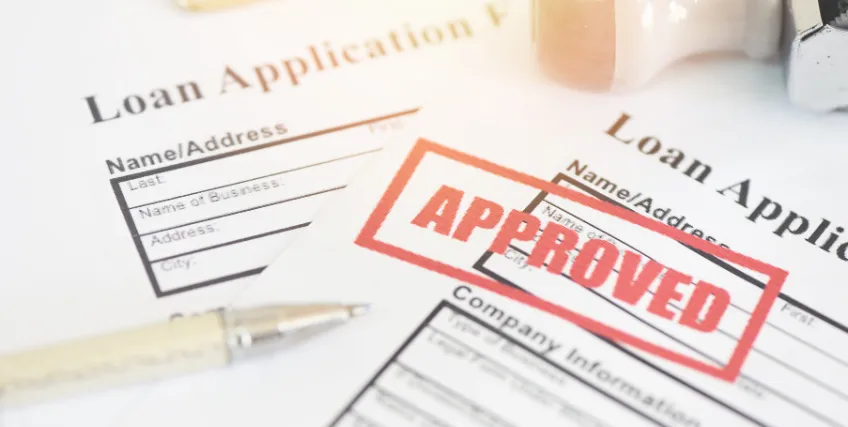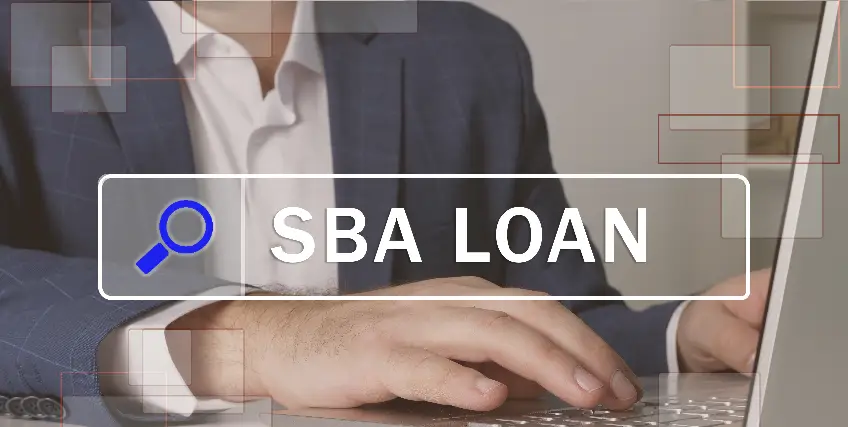SBA Application Guide: How U.S. Small Business Owners Can Impact Their Chances of Approval
September 5, 2025 | Last Updated on: September 5, 2025

U.S. small business owners often face a lot of challenges and opportunities when running their small businesses. They typically juggle operations, growth, and financial stability. However, one powerful support that can be used is the SBA application, offered by the U.S. Small Business Administration (SBA).
The U.S. Small Business Administration offers different types of loan programs through federal government that helps entrepreneurs secure financing. As a result, many small business owners find that applying for SBA loan applications opens doors to affordable financing options, lower interest rates, and longer repayment terms.
An SBA application may seem complicated at first glance. However, with preparation, the right lender, and a clear plan, the process becomes manageable. In this article, we’ll discuss the SBA application for business financing, highlight ways to improve your chances of approval, and explain how to make the most of available programs.
What Are SBA Loans?
SBA loans are financing solutions but are not offered directly from the federal government. Instead, the United States government provides a guarantee to private lenders, such as banks or credit unions. Hence, this guarantee reduces risk for lenders.
Some of the popular SBA loan programs include:
- SBA 7(a) loans: These are flexible business loan options for working capital, debt refinancing, or business expansion.
- SBA 504 loans: These loan programs offer long-term financing through a development company for purchasing equipment or commercial real estate.
- Microloans: These SBA loans offer smaller amounts, up to $50,000. Hence, it can be used by startups, entrepreneurs, or local non-profit lenders to help small businesses grow.
- Disaster loans: Business owners can apply for this SBA application through Economic Injury Disaster Loans (EIDL) during emergencies such as physical damage to property.
For example, during natural disasters, SBA disaster loan programs support both homeowners and business owners. Therefore, these SBA loans provide disaster assistance to repair damage and maintain operations.
Understanding the SBA Application Process
When applying for the SBA application, the process can feel a bit lengthy. However, understanding each stage of the SBA application process can help. Small business owners can start by reviewing details on sba.gov, the official website of the U.S. Small Business Administration.
However, when applying for these loan programs, the SBA application process can take weeks, but preparation often speeds it up. So, here are the steps:
- Review eligibility: Before applying for SBA loans, check if your business qualifies as a for-profit U.S. business. Whereas non-profit organizations may access special SBA grant programs.
- Choose the right loan program: Make sure to decide between SBA 7(a) loans, 504 loans, Microloans, or Disaster loans.
- Prepare documents: Gather all the necessary documents like financial statements, tax returns, a balance sheet, and business plans when filling out the SBA application.
- Find a lender: Now use the Lender Match tool on sba.gov to connect with an SBA lender.
- Complete SBA forms: Once you’re connected to the lender, fill out the SBA application form with all the required paperwork, such as SBA Form 1919.
- Submit loan application: Submit the important details through your bank or via the MySBA Loan Portal.
- Wait for review: Once you have submitted your SBA application for loan programs, lenders and the SBA evaluate your creditworthiness, repayment ability, and supporting documents.
Key Requirements for SBA Loan Approval
When filling out the SBA application for business financing, loan approval depends on multiple factors. Both the U.S. Small Business Administration and your SBA lender evaluate a wide range of details before reaching a decision.
Therefore, understanding these requirements allows borrowers to prepare ahead and strengthen their profile. Some of the most common factors reviewed include:
Creditworthiness
To qualify for an SBA loan, having a solid credit history shows reliability. Most lenders expect a borrower to have a personal credit score of 670 or above. Therefore, a strong credit reassures the lender that you are committed to timely repayment.
Eligibility
For SBA loans, the business must meet the required eligibility standards set by the United States government. To qualify, you must operate as a for-profit company within the U.S. Moreover, some non-profit groups can access separate programs, such as SBA grant programs.
Financial Statements
When submitting the SBA application, lenders carefully review financial statements, including income reports, cash flow, and the balance sheet. These documents show whether the business generates enough revenue to cover loan payments. Moreover, accurate and updated statements increase confidence.
Business Plan
Borrowers need to create a comprehensive business plan before applying for SBA loans. Lenders typically want to see how the loan amount will be used, whether for working capital, real estate, or expansion. Hence, the business plan outline goals, revenue strategies, and how the loan supports long-term growth.
Collateral and Guarantees
Many SBA loan programs require collateral. For example, larger loans like 504 loans often involve assets such as property or equipment. Additionally, personal guarantees may be required from business owners.
Repayment Ability
When you apply for SBA loans, lenders want to understand how repayment will work. Hence, having clear revenue projections, existing contracts, and consistent sales history show the ability to manage the business loan responsibly.
How to Strengthen Your SBA Application
A strong SBA application reassures both the lender and the SBA. So, here are the ways to strengthen your SBA application for a business loan:
- Improve financial records: Make sure your tax filings, balance sheets, and income statements are updated.
- Boost credit scores: For SBA loans, both personal and business credit matter. So, pay your bills on time to build trust.
- Clarify loan purpose: In your business plan, specify the purpose of your loan, whether funds will go toward real estate, working capital, or equipment.
- Demonstrate repayment: Show sales growth or existing contracts to lenders so that you can guarantee them your future income.
- Work with a mentor: Business owners can consult with an SBA mentor or advisor who can help refine your business plan.
Tips to Improve Loan Approval Chances
When filling out an SBA application for a business loan, improving approval odds often comes down to preparation and transparency. Here’s how you can improve your SBA loan approval chances:
- You can use SBA Lender Match to find experienced lenders who are familiar with your industry.
- Always highlight your ability to manage a business loan responsibly.
- Be transparent about your weaknesses and show solutions to lenders.
- Also, provide realistic repayment timelines with accurate business numbers.
- If applying for disaster assistance, make sure to document all physical damage or income loss.
- Provide realistic repayment timelines with accurate numbers.
SBA Grants and Other Programs
While SBA loan programs are most common, business owners can also apply for SBA grant programs. An SBA grant application is an ideal option for non-profit groups, research organizations, or community projects. Unlike business loans, these grants are not repaid.
However, most for-profit companies rely on financing options like Microloans, SBA 7(a), or 504 loans. So, if a borrower is not approved for an SBA loan, alternative business loan options can be considered from online lenders or refinancing with better interest rates.
The Bottom Line
To summarize, every successful business story begins with the right support and resources. The SBA and its partners provide more than just business funding. They deliver programs that act as a lifeline for many business owners across the country. It offers loan programs like SBA 7(a), 504, Microloans, and Disaster loans for nearly every stage of business growth.
However, strong preparation, accurate financial statements, and choosing the right SBA lender can significantly improve approval chances. Additionally, entrepreneurs should explore the MySBA Loan Portal, connect with a mentor, and prepare a complete SBA application for a business loan that reflects their vision and commitment.
Hence, visit sba.gov today to check your eligibility and compare different loan programs. With the right approach, your next business loan could fuel stability, expansion, or recovery.
FAQs About SBA Application for a Business Loan
What is an SBA loan, and how does it work?
An SBA loan is a business loan backed by the United States government. While funds come from a private lender, the SBA guarantees a portion of the loan. This reduces risk for lenders and allows small business owners to access better interest rates, longer repayment terms, and larger loan amounts for qualified applicants. Some of the common SBA loan programs include SBA 7(a) loans, 504 loans, and Microloans.
How can I apply for an SBA loan?
To apply for an SBA loan, first review eligibility on sba.gov. Prepare your loan application, including SBA forms (such as SBA Form 1919), financial statements, and a clear business plan. Then connect with an SBA lender through tools like Lender Match or submit your request via the MySBA Loan Portal.
How do disaster loans work through the SBA?
The SBA offers disaster loans for businesses and homeowners affected by natural disasters or emergencies. These include SBA disaster loans and EIDL, which provide disaster assistance for physical damage or lost working capital. Therefore, applicants need to submit a detailed SBA loan application including documentation of damage and financial need.
Can a startup qualify for an SBA loan?
Startups can qualify, particularly for microloans or SBA 7(a) loans, if they demonstrate eligibility and a solid business plan. Lenders look for strong creditworthiness, realistic repayment projections, and evidence that the loan amount will support growth. Hence, consulting an SBA mentor can often improve chances for loan approval for startups and new businesses.
Can I refinance an existing business loan with the SBA?
Certain SBA loan programs, like SBA 7(a) loans, allow refinancing of existing debt. As a result, this can reduce interest rates, extend repayment periods, or consolidate loans into a single business loan. However, discuss eligibility with your SBA lender and provide updated financial statements.
Frequent searches leading to this page
Related Articles
Term Loans are made by Itria Ventures LLC or Cross River Bank, Member FDIC. This is not a deposit product. California residents: Itria Ventures LLC is licensed by the Department of Financial Protection and Innovation. Loans are made or arranged pursuant to California Financing Law License # 60DBO-35839




